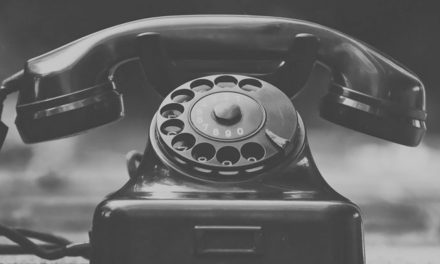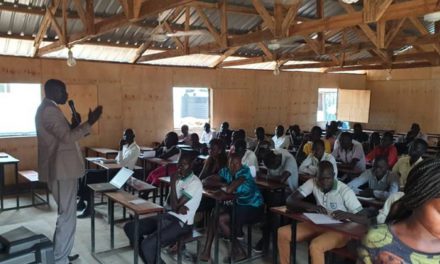
Digital Illiteracy Impact on the Kenyan deaf community

This story was first published in The People Daily.
By Joyce Njer Kimani
As the world shut down in 2020 due to the COVID-19 pandemic, the lives of over 600,000 deaf people in Kenya became restricted, isolated, and inaccessible. The shift to online communication platforms, such as Zoom, became the norm for any communication with the outside world.
However, these virtual spaces failed to consider the impact on the deaf, who relied on Kenya Sign Language (KSL), a visual language. And though there was a surge in internet usage, with a 70 percent increase [1]in data usage as reported by Safaricom, the leading telecom service in Kenya, which led to a rise in social media and video conferencing platforms for daily economic, social, and political activities, there were unintended consequences for the deaf community.
Jane, [2]a deaf individual, found herself feeling bored and isolated since most of her family members did not understand KSL. She turned to the internet, clicking on links to keep herself entertained. Over time, she developed a close bond with an online “partner” and started exchanging personal information, including her passwords to various channels.
One morning, she woke up to find her pictures posted on a Telegram chat. Confused and unable to log into her Facebook account, she reached out for help but was locked out. Her compromised account started churning messages to people in her contact list, demanding money as she was in an emergency.
Some friends unfortunately bought in, and sent the cash to bail her out. However, a bigger population accused her of being a liar and a con artist, something she vows she is not. It was an incredibly difficult and scary experience for Jane, and she eventually had to leave all social media platforms. Three years later, she created a new account, starting afresh.
Judy Kihumba, the founder of Talking Hands, Listening Ears, and a mental health advocate and a digital safety trainer for the deaf, attributes these incidents to high levels of digital illiteracy. Deaf individuals are specifically targeted by fake online personas, and many have unknowingly sent explicit images, thinking they were involved in romantic relationships and with a promise of marriage.
These images are later used to blackmail them, and due to their fragile self-esteem, they often end up giving money to silence their perpetrators. Kihumba points out that such hacks not only lead to severe bullying from within the deaf community but also stem from a lack of understanding about how the internet operates. Deaf individuals are unaware of the concept of tabloids or sensationalized content where people write about anything.
Kihumba shared an incident she witnessed two weeks ago, where a deaf individual’s hacked account posted pornographic content, causing significant bullying from other deaf people. Kihumba had to reach out to the individual’s sister, who didn’t know KSL, to inform her about the account breach.
Unfortunately, the sister did not understand issues around hacking, so she had to do a crash course for both on digital safety and security. She cites that many deaf people only started using the internet during the COVID-19 pandemic. Without proper information and guidance, they unwittingly fell into hacking scenarios.
She has been training the deaf on an individual basis, but the need out there is overwhelming. She has seen the impact of the one-on-one pieces of training and is in the process of creating videos and applications that give digital training to them.
“KSL is very visual. It is important to create a tailor-made curriculum for the deaf and ensure that it is in simplified forms. We are trying to make this possible and we hope we will be able to reach a wider audience in future,” she added.
Martin Njoroge, a deaf instructor at the Horizon Sign Language Institute in Nakuru and a human rights defender, highlights that the internet has become a breeding ground for fraudsters targeting the deaf community. Deaf individuals often find themselves joining random WhatsApp groups and unknowingly clicking on malicious links.
This puts them at risk of ending up on pornographic websites. Children, he points out, have often ended up clicking on sites which have led them to giving up even their parents passwords as they are not monitored but are given gadgets as a means of distracting them.
Martin Njoroge, who is deaf and a trainer on KSL at the Horizon Sign Language Training Insitute explains how digital illiteracy has impacted the deaf in the community.
Njoroge believes that addressing the online menace requires continuous training on digital safety and security, with a specialized curriculum tailored to the deaf community. Teaching them basics such as verifying information with multiple sources before sharing it and how to identify suspicious links would significantly protect them.
Stella Muthoni, a KSL interpreter, emphasizes that many deaf individuals struggle to understand the severity of hacking, catfishing, and cyberbullying. She suggests starting with basic sign language training that covers computer packages and simple tasks like creating and sending emails since this foundational knowledge is lacking.
Concepts like blocking individuals, password protection, email encryption, and sharing information securely with trusted parties are foreign to them. Many deaf individuals have fallen victim to organized crime due to this lack of understanding. Muthoni also highlights the importance of educating them about the power of the internet, including job opportunities and online employment options.
Ms Muthoni has been training the deaf in Nakuru on digital literacy, and utilizes any opportunity for engagement to give them tips on how to keep safe online.
“We also need to ensure that in future, digital literacy is introduced in schools as the hearing enjoy tehm too,” she added.
Immaculate Nabwire, a Digital Security Training Lead at Defend Defenders, suggests developing user-friendly devices embedded with software specifically designed for the deaf community. Providing them with affordable access to these devices and breaking down the software in a way they can understand would protect them online. Additionally, involving them in training programs would help them navigate the online world effectively.
This publication was produced with the financial support of the European Union. Its contents are the sole responsibility of Joyce Njeri Kimani and do not necessarily reflect the views of the European Union.
[2] Names have been changed to protect identity




















Recent Comments